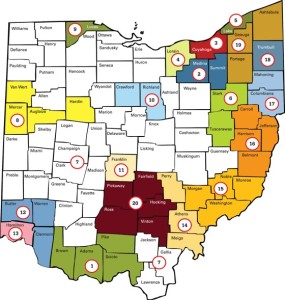Will new rules for unemployment get Ohioans back to work?

By Maggie Thurber | For Ohio Watchdog
ONE-STOP: Ohioans who want to continue receiving unemployment compensation now must register with their local one stop shop and complete various assessments to maintain their eligibility.
Unemployed Ohioans face new requirements if they want public benefits. But will the new rules actually help people find jobs faster?
Because of state workforce legislation signed into law in July, unemployed workers must now register with OhioMeansJobs.com and complete additional re-employment activities to continue receiving benefits.
“The goal is to reduce unemployment,” said Angela Terez, a spokeswoman for the Ohio Department of Job and Family Services, which administers the unemployment compensation system.
“We hope it will help people find work faster. If they don’t complete requirements by the date required, they could be removed from receiving benefits,” she said.
She said the average duration of unemployment benefits in March was 16.3 weeks, but will the new rules change that?
“I’m hopeful and encouraged that the bill will accomplish that goal,” said Rep. Tim Derickson, R-Oxford, who sponsored the measure. “The whole purpose is not complicated — it’s to get folks back to work as quickly as possible and help them identify possible training when they need it. That’s the whole mission.”
But how will anyone judge whether the mission has been accomplished?
“That’s a really good question,” Derickson said. “That’s what we need to measure over time. I’m not interested in passing legislation just to pass it.”
But the bill has no tracking or performance measures.
“That would be something that I would expect JFS to do, but we didn’t put it in the law,” he said. “As a legislator, I’m dependent on JFS to prove or measure success on how quickly people claim work or get the additional training. I guess I’m counting on JFS to track that.”
But the agency doesn’t keep track of such data.
It doesn’t measure how involvement with OhioMeansJobs or the one stop-shops affect the amount of time spent collecting unemployment, Terez wrote in an email. She referenced a Pew Charitable Trust article saying Nevada reduced the average length of payments from 31.5 weeks to 28.1 weeks as part of that state’s decision to connect benefit eligibility with its job-search training program.
During committee hearings on the bill, the primary concern was over the original requirement to register online, not tracking the effects of the requirements.
“That became the focus — how do we overcome that problem,” Derickson said, noting the online-only requirement was removed.
“How do we track the success rate of the system? We do need to know that it is successful as it moves forward,” he said. “Otherwise it’s just another action for people to take as they look for a job.”
Following up on the impact of various legislation is an “interesting dilemma,” Derickson said.
“Legislators like me come to Columbus three days a week and deal with very broad subjects with great time demands. You can spend a lot of time on an issue and get a law passed. But you’re very reliant and dependent upon agencies to follow through on the implementation — and you want to give them the flexibility to do so. You have to follow up, but you find yourself very dependent upon them. I will certainly have conversations with JFS as to how to track this.”







